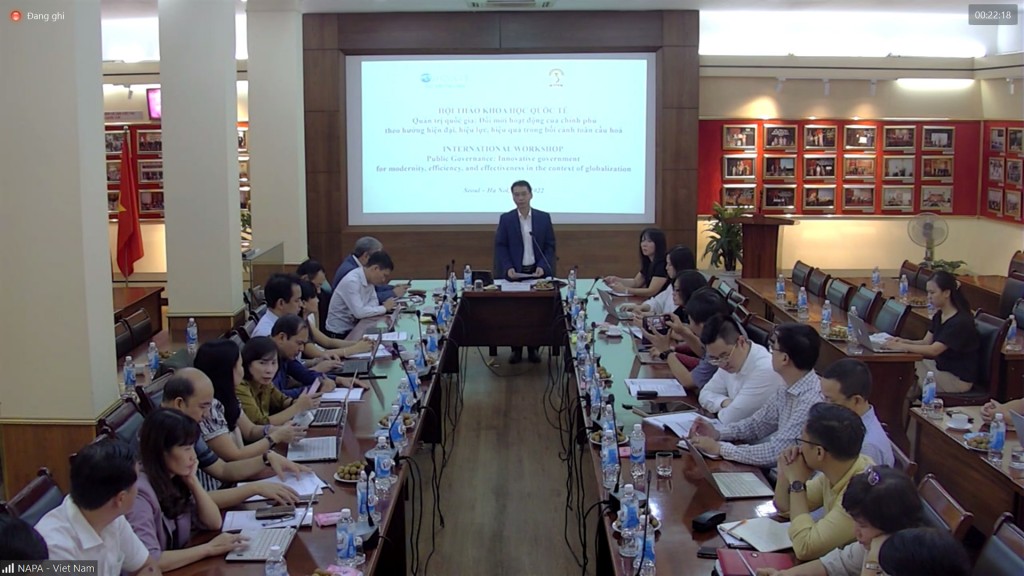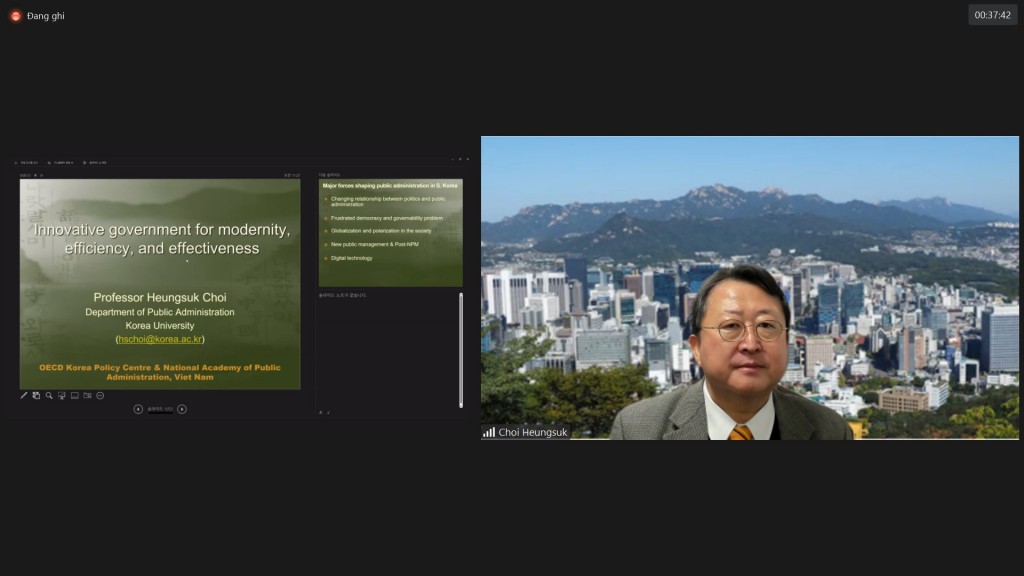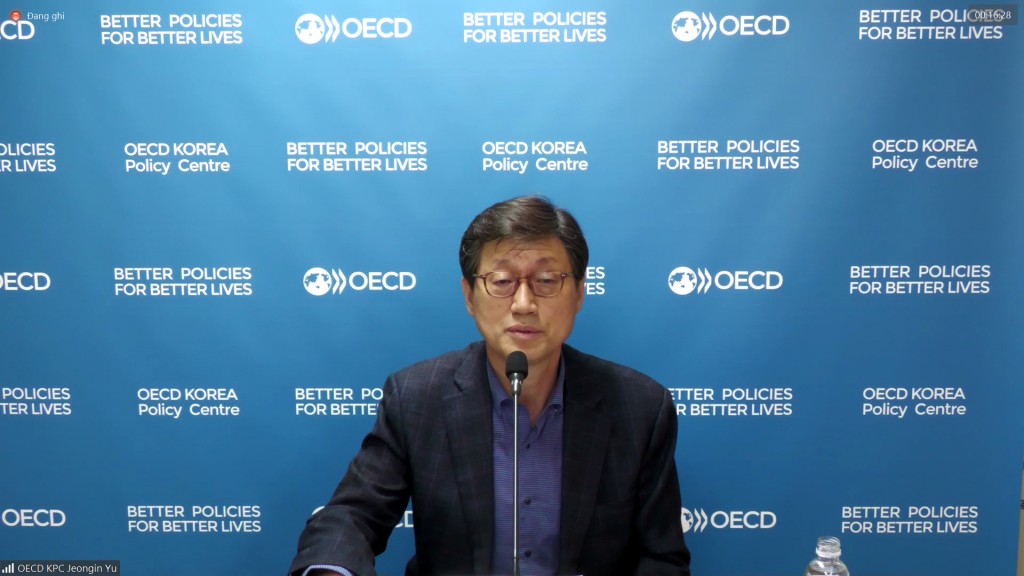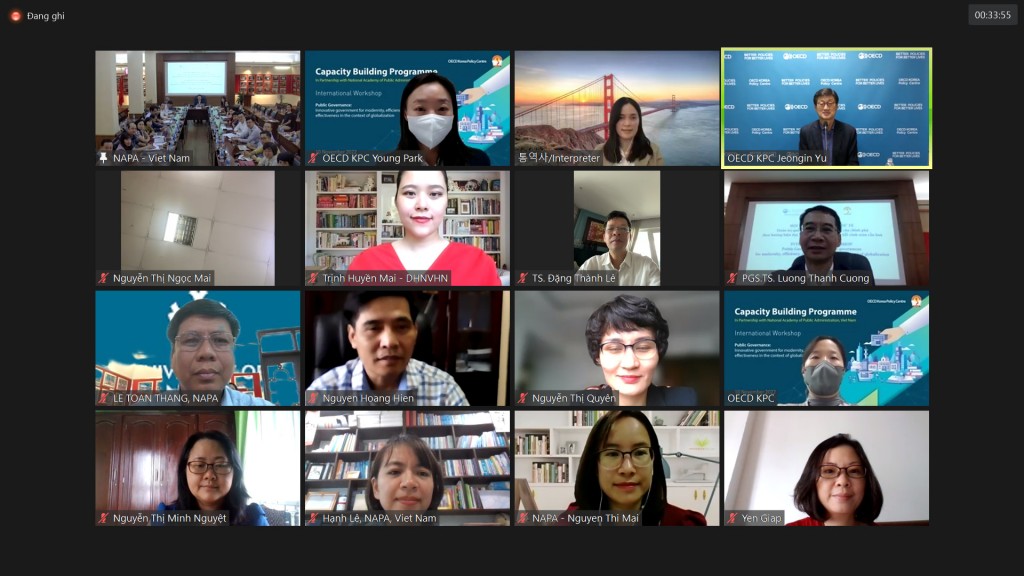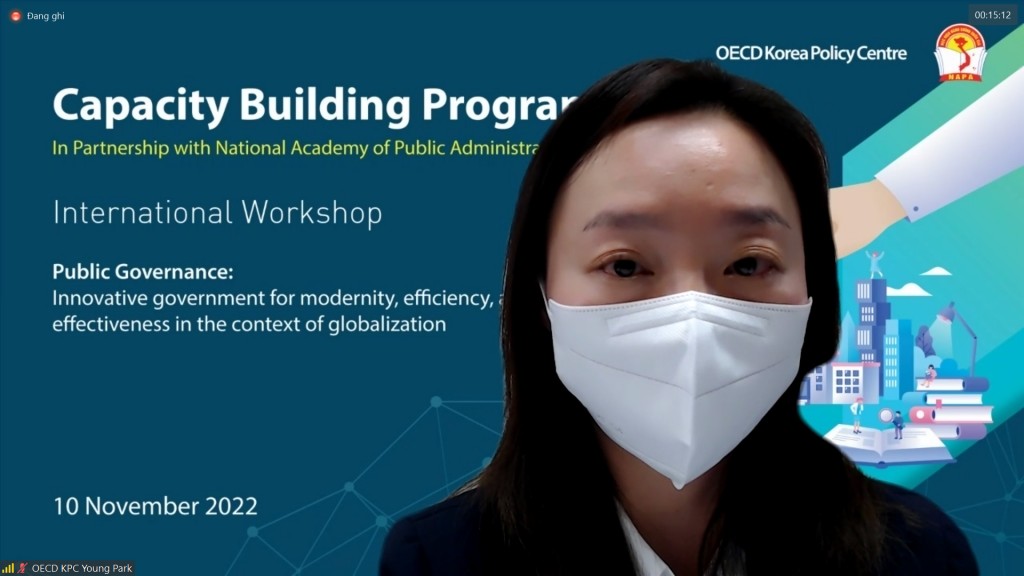On 10 November 2022, the International Workshop “Public Governance: Innovative Government for Modernity, Efficiency, and Effectiveness in the Context of Globalization” was organized virtually in the form of a video meeting in Ha Noi, at the premise of the National Academy of Public Administration (NAPA), in collaboration with the OECD Korea Policy Centre (OECD KPC). Assoc.Prof. Dr. Luong Thanh Cuong chaired the workshop. Participating in the workshop were Vietnamese public officials from central and local agencies, lecturers from NAPA and other universities, administrators and scholars.
The workshop aimed to discuss issues in the public governance and innovative government in the context of globalisation. It focused on strengthening knowledge and skills among public officials in Viet Nam in the area of public governance and innovative government. There were two interactive sessions based on presentations and discussions around real practical examples. Participants had the opportunity to raise questions and consider possible responses to problems encountered in their daily practice.
In the session “Modernity, Efficiency, and Effectiveness of a Government”, Prof. Heung Suk Choi from Department of Public Administration, Korea University mentioned innovations in South Korean government for public governance in the context of globalisation. Major forces such as changing relationship between politics and public administration, frustrated democracy and governability problem, globalization and polarization in the society, new public management & Post-NPM, digital technology have shaped public administration in South Korea.
Innovations were introduced in the South Korean government, especially in performance evaluation. Government 3.0 as a post-NPM initiative focuses on building a communicating & transparent government, a capable government, a citizen serving government. The public administration reform in the Moon Jae-In Administration carried out various innovations such as Institutions for citizen grievance filing, Citizen Petition at the Blue House, Citizen-participatory budgeting at the central government, Expansion of public data opening, Mobile Home Tax, Public procurement for innovative products, Stronger representation for women, etc. From 2017, the South Korea government has promoted the next generation of dBrain(2022/01), smart cities, AI and big data, etc.
In the Session “Public Governance: Models and Trends”, Prof. Chang Soo Choe, Professor of Public Administration from Cyber Hankuk University of Foreign Studies introduced various models of governance, including good governance, local governance, old governance, new governance, and e-governance. Governance is important for development.
The World Bank defined governance in three aspects including the process by which governments are selected, monitored and replaced; the manner in which power is exercised in the management of a country’s economic and social resources for development; and the capacity of the government to effectively formulate and implement sound policies. Good Governance is based on the following pillars namely transparency, capacity of public agencies, accountability, participation, and legal foundation. A comparative evaluation of good governance of South Korea and Viet Nam was presented based on six World Bank Indicators which were Voice & Accountability; Political Stability & Lack of Violence; Government Effectiveness; Regulatory Quality; Rule of Law; Control of Corruption. In 2021, both Viet Nam and South Korea got the highest points in the criteria of government effectiveness which gained 72.1 and 97.1 respectively.
For good governance, governments should be responsive and trustable. For a responsive government, public officials are required to have two-way communication through listening to citizen’s voice, being kind to citizen, changing the mind-set of being a servant not a ruler, working for citizen, working hard to solve citizen’s problem, meeting citizen’s demand, being competent and doing his/her best. For a trustable government, public officials have to be uncorrupted and fair to everyone. Public officials have to change perception and promote capacity building.


